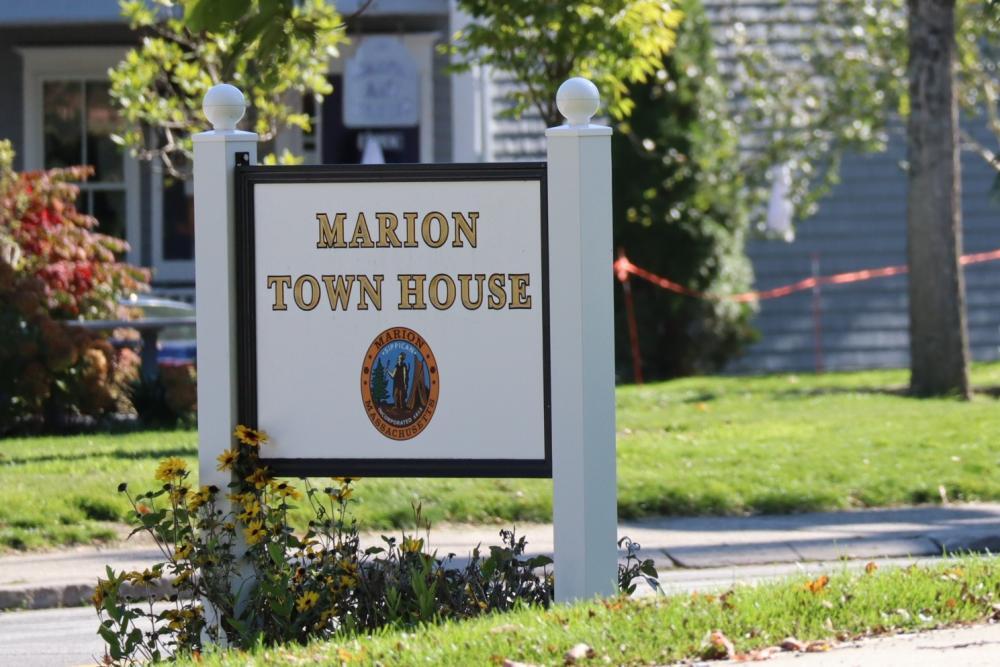Marion mulls accessory dwelling unit bylaw
MARION — When Gov. Maura Healey signed the $5.2 billion Affordable Homes Act in August, her administration termed it the most ambitious legislation in the history of Massachusetts to tackle what is perhaps the commonwealth’s biggest challenge.
Designed to address housing costs, the Affordable Homes Act contains a key component amending state zoning laws to allow for accessory dwelling units of up to 900 square feet to be constructed by right in single-family zoning districts.
Accessory dwelling units, known as ADUs, are secondary residential spaces located on the lots of single-family houses. The new state law essentially allows the units to be built without a discretionary zoning approval process.
Now, Marion officials are considering how that piece of the legislation, which takes effect Feb. 2, 2025, will be put into practice within the town.
In a joint meeting Monday, Oct. 7, the Marion Planning Board and Select Board discussed a new ADU bylaw.
Board members agreed to allow ADUs to be constructed up to 1,200 square feet, with units between 900 and the maximum 1,200 square feet requiring a special permit. It was determined that other points that emerged during the meeting, such as the possibility of regulating short-term rentals and allowing ADUs in different zoning districts, required legal guidance.
“The more we dig into it, the murkier it gets,” Marion Select Board Chair Norm Hills said.
Marion currently has a bylaw in place regulating accessory apartments up to 1,200 square feet at single-family dwellings. The bylaw stipulates that the dwelling must be occupied by the owner and the accessory apartment must be occupied by an “immediate family member” of the owner.
Under the new ADU state legislation, municipalities cannot regulate owner and family occupancy in the principal dwelling and ADU. The new legislation also regulates ADUs to be no larger than half the gross floor area of the principal dwelling or 900 square feet, whichever figure is smaller.
“The existing bylaw is going to have to be totally rewritten,” Hills said.
Municipalities do have the ability, under the Affordable Homes Act, to regulate short-term rentals in ADUs.
Building Commissioner Bob Grillo suggested getting rid of the existing accessory apartment bylaw and determining with the new bylaw if ADUs can exceed 900 square feet and if so, whether those units can be built by right or require a special permit.
“I personally think we should get rid of the old bylaw altogether because it doesn’t allow rentals and it’s only for family members, and I’ve been saying since I got here, ‘How do I regulate that?’” Grillo said.
While the Planning and Select Boards reached a consensus that ADUs could be constructed up to 1,200 square feet but would need special permits between 900 and 1,200 square feet, other discussion points reached less definite conclusions.
While municipalities can regulate short-term rentals in ADUs according to the state legislation, town officials were not certain if potential regulation could be tied to owner occupancy, a provision suggested by Marion Select Board member Toby Burr.
“We can regulate short-term rentals,” Burr said. “We could say, ‘You can have a short-term rental if you are owner-occupied.’”
Grillo and Town Planner Doug Guey-Lee said such a stipulation may be possible, and it was determined the town would check with legal counsel.
Town officials further determined that legal guidance would be needed to determine allowing ADUs in non-residential zoning districts. A recommendation from town counsel will also be sought regarding how to define “gross floor area” and whether that term includes a dwelling’s basement and garage.
The discussion was aimed to serve as guidance for the Codification Committee, Marion’s standing panel tasked with making recommendations for codifying new town bylaws.
“The Codification Committee is going to run with this, take the existing bylaw, slash it, start over and then bring it back to the Planning Board,” Planning Board Chair Andrew Daniel said.
Healey’s administration has estimated between 8,000 and 10,000 accessory dwelling units will be constructed throughout Massachusetts in the next five years due to the new housing legislation.














